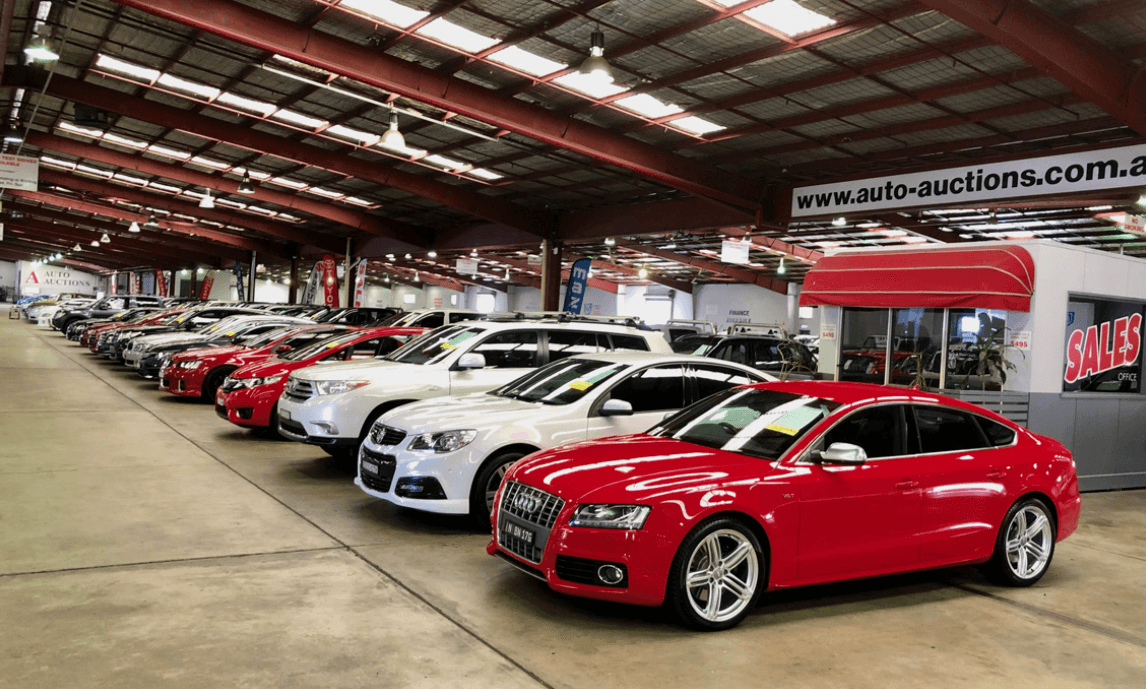166 Auto Auction: Understanding the Process and Benefits
Auto auctions have long been an essential component of the automotive industry, providing a platform for buying and selling vehicles in bulk. Whether you’re a dealer looking for inventory or an individual searching for a bargain, auto auctions can be an excellent avenue to acquire your next vehicle.
One of the most well-known auto auction types is the 166 Auto Auction which caters to a diverse range of buyers and sellers. In this post, we’ll explore the 166 auto auction how it works, the benefits it offers, and how you can make the most of your experience.
What is a 166 Auto Auction?
A 166 Auto Auction typically refers to a type of automotive auction, often named after its specific auction format or code. The “166” designation could either refer to a specific auto auction house, a particular event number, or a category within a broader auction system. These auctions bring together buyers and sellers for the exchange of vehicles, ranging from cars and trucks to motorcycles and specialty vehicles. Auctions are held regularly, and anyone interested in purchasing or selling vehicles can participate, though some require dealer licenses to bid.
While the term “166 Auto Auction” might seem specific to a particular brand or event, the process and principles behind these types of auctions remain largely similar. They offer a fast-paced, transparent, and efficient method for buying and selling vehicles in large quantities.
How Do 166 Auto Auctions Work?
1. Vehicle Listing
At any auto auction, including 166 Auto Auctions, vehicles are listed for sale by various sellers, including dealerships, private sellers, and even government or fleet vehicles. Each car is cataloged with detailed descriptions, including the make, model, year, mileage, condition, and other important information. Many auctions will also include vehicle history reports such as Carfax or AutoCheck to provide insight into the vehicle’s past.
2. Registration Process
To participate in an auto auction, buyers and sellers must first register. For 166 Auto Auctions, you may be required to provide personal or business details, proof of identification, and in some cases, proof of funds. Some auto auctions are open to the public, while others might be restricted to licensed dealers or industry professionals.
3. Auction Day
On the day of the auction, vehicles are typically displayed in a physical location or online (in the case of digital auto auctions). Each vehicle is given a number and is auctioned one by one. Bidders place bids, and the highest bid wins the vehicle.
- Live Bidding: This is the most traditional form of auto auction, where participants are physically present, and bids are called out in real-time.
- Online Bidding: With the rise of digital technology, many 166 Auto Auctions are now held online. Buyers can view vehicles, place bids, and participate from the comfort of their homes. Online auto auctions may operate in real time or over a set period.
4. Winning the Bid
If you place the highest bid for a vehicle, you win the auction. However, the price you win at is usually the hammer price plus any applicable fees. These fees could include auction house fees, sales tax, and handling charges. Once the sale is complete the winning bidder is expected to pay in full before taking possession of the vehicle.
5. Payment and Vehicle Transfer
After the auction, winners are required to finalize payment. Depending on the auction rules, payment can be made via bank transfer, credit card or other forms of payment. Once payment is processed, the buyer can take possession of the vehicle and any necessary paperwork, including title transfer and registration is completed.
Related: Mobile Auto Glass Repair
Types of Vehicles Available at a 166 Auto Auction
A 166 Auto Auction can feature a variety of vehicle types. Some common categories include:
- Used Cars: Pre-owned vehicles in various conditions, ranging from newer models to older vehicles.
- Salvage Cars: Vehicles that have been damaged due to accidents, flooding, or other incidents. These cars may require significant repairs before they can be used on the road.
- Luxury and Exotic Cars: High-end vehicles from brands like Mercedes-Benz, BMW, and Ferrari.
- Classic and Collector Cars: Vintage vehicles that may be of interest to car enthusiasts and collectors.
- Motorcycles and RVs: Many auto auctions also sell motorcycles, trailers and recreational vehicles.
- Fleet Vehicles: Cars and trucks owned by companies or government agencies, which are often sold in bulk.
Why Should You Consider Participating in a 166 Auto Auction?
1. Bargain Prices
One of the most significant advantages of buying through a 166 Auto Auction is the potential to get a great deal. Since many of the vehicles at auctions are sold by fleet owners, insurance companies, or dealers, the prices can often be much lower than those found at traditional dealerships. In particular, salvage and wholesale vehicles can offer significant savings if you’re willing to invest in repairs.
2. Transparency
Auto auctions are generally very transparent. Every vehicle is thoroughly cataloged, and detailed descriptions are available for potential buyers. Furthermore, many auctions offer vehicle history reports that give insights into prior accidents, service records, and more. This transparency helps buyers make informed decisions, reducing the chances of any hidden surprises after the purchase.
3. Access to a Wide Range of Vehicles
At 166 Auto Auctions, you can find a diverse array of vehicles that you might not typically encounter at a regular dealership. Whether you’re in the market for a specific make or model, or you’re looking for something more unique or specialized, an auto auction can provide access to a wide variety of cars, trucks and motorcycles. This makes it an excellent place to search for rare, hard to find or even luxury vehicles.
4. Fast and Efficient Process
Buying a vehicle through an auto auction is often quicker than traditional methods, such as going to a dealership. Auctions are organized, and the cars are often sold within minutes, meaning buyers can quickly secure the vehicles they want. For dealers and wholesalers, this makes it easy to build an inventory without wasting time.
5. No Haggling
Unlike traditional car buying, where negotiations can be lengthy and stressful, auto auctions operate on a simple bidding process. Once the bidding starts, it’s a clear race to the highest bid, eliminating the need for lengthy price negotiations or back-and-forth with sellers.
6. Opportunity to Sell
For sellers, a 166 Auto Auction can be an excellent way to offload unwanted or surplus vehicles quickly. Sellers include everything from car dealerships to private sellers and government agencies. If you’re looking to clear out vehicles an auction can help you sell multiple cars at once with minimal hassle.
Tips for Buying a Vehicle at a 166 Auto Auction
While auto auctions can be a great place to find a deal, there are some important tips to keep in mind to ensure you’re making a wise purchase:
1. Do Your Research
Before participating in the auction, do some research on the vehicles you’re interested in. Review their history, check for any recalls and consider how much you’re willing to spend, including any repairs or upgrades. Many auctions provide online catalogs where you can view photos and descriptions of the vehicles.
2. Inspect the Vehicles
If possible, attend the auction in person to inspect the vehicles before the auction starts. Pay close attention to the exterior and interior condition of the cars. You may want to bring a mechanic or trusted advisor to help you spot potential issues.
3. Set a Budget
It can be easy to get caught up in the excitement of bidding, but it’s important to set a firm budget and stick to it. Factor in additional costs such as auction fees, transportation, and repairs before you decide how much to bid.
4. Know the Auction Fees
Understand the various fees associated with the auction before you begin. These can include a buyer’s premium, documentation fees, and transportation costs. Make sure to factor these into your overall budget to avoid any surprises.
5. Understand the “As-Is” Condition
Most vehicles sold at auction are sold “as-is,” meaning that once the hammer falls, there is no turning back. Be prepared for the possibility of needing repairs and don’t expect to get a refund if the vehicle turns out to have hidden issues.
6. Consider the Bidding Process
Understand the bidding rules before you start. Some auctions have reserve prices, while others are absolute, meaning the highest bid wins regardless of price. Pay attention to the auctioneer and be ready to place your bid when the time is right.
Conclusion
166 Auto Auctions provide an exciting and potentially profitable way to buy or sell vehicles. Whether you’re looking to find a bargain or simply offload a vehicle quickly, these auctions offer numerous benefits including fast transactions, transparency and access to a wide variety of vehicles. By doing your research setting a clear budget and understanding the bidding process, you can make the most of your auto auction experience.







